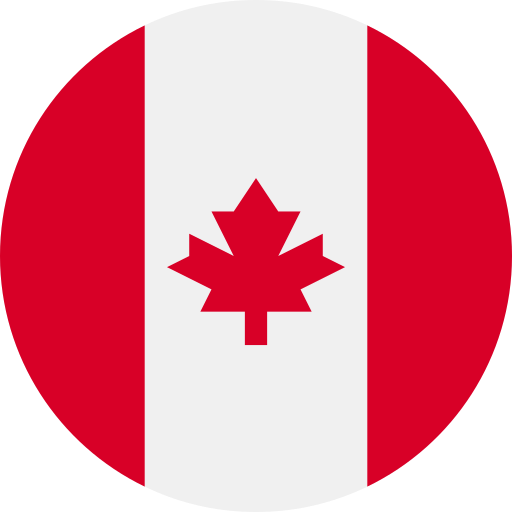How to Build a Robust Compliance Framework for Your Forex Brokerage
 By: Calvin Morris
By: Calvin Morris
 13-12-2024
13-12-2024 
Forex Brokerage demands regulation that involves a very strong compliance structure. The industry expects a Broker to be highly regulated not only for legality but also to develop trust and stability amongst the clientele. The compliance system you adhere to should be able to comply completely with the regulations, reduce the risks and develop credibility with traders and investors. Here, we have described in depth the steps to build a robust compliance framework that suits your Forex Brokerage.
Know your compliance requirements:
Forex Brokerage compliance is different for different jurisdictions. So, first and foremost, you must understand the regulatory landscape of your compliance. You must research and find out the regulatory authority in your country or target region. There are various authorities in various countries, such as the FCA in the UK, the CySEC in Cyprus, and the NFA in the USA. Analyze the requirements for a specific jurisdiction along with licensing, reporting standards and operational guidelines. Also, keep updated with the changes to continue a particular compliance.
Compliance Policy that describes the process:
If you choose a particular jurisdiction, your compliance policy should outline all the rules and processes to be followed for being inline with the legal and ethical standards. One must incorporate the components as below:
AML (Anti-Money Laundering) and CTF (Counter-Terrorism Financing) : There must be defined protocols for keeping track of transactions, identifying any suspicious activities and reporting them to the authorities.
KYC (Know Your Customer): Incorporate all the rules to be followed for verifying client identities and make sure that all the ongoing activities of the client are within the rules.
Management of Risk: Operational and financial risks must be identified, assessed, and mitigated using proper procedures.
Let the Compliance Officer do the job:
You need a designated compliance officer who is dedicated to the effective implementation of your compliance policy. The duties of a compliance officer include the following:
To look after compliance with regulatory authorities.
To conduct audits and inspections for risk management.
To act as a bridge between the brokerage and compliance authorities.
Nothing but a Robust Technology Solution:
Strong technological solutions can manage compliance with minimum chances of errors. Forex brokerage must incorporate certain tools to streamline the process:
Compliance Management Software: This one helps automate reporting, monitor changes in regulations and manage documentation.
KYC Solutions that are powered by AI: Reduce chances of human errors and swift identity verification with such tools.
Transaction Monitoring Systems: Keep track of transactions and identify suspicious or fraudulent trading activity.
Provide Proper Training to Your Team:
Maintaining any compliance is not the job of only the compliance officer. Every member of the organization has to understand their role in adhering to the regulations. Without team effort, nothing can be accomplished. Proper training should be provided to the team so that you can achieve your targets. The regular training sessions must include the following:
Notifications regarding the regulations and their effects on daily operations.
Training to handle customer data with utmost care and secrecy.
How to identify and report suspicious activity or non-compliance.
Audits and Inspections on a regular basis:
Weekly or fortnightly inspections or audits would help understand the voids in your compliance structure and fill the gaps for its effectiveness. Internal or third-party audits should include the following:
Reviews and reporting for adherence to KYC, AML and other regulatory protocols.
Compliance-related technologies should always be updated to maintain efficiency.
Suggestions and recommendations for improving the operations.
Maintain a Secure Whistleblowing Channel:
Make sure that your team and your clientele feel safe and secure when reporting any suspicious or unethical practices to management without hesitation. Transparency and accountability are the keys.
Communication without gaps:
Both-way communication, either with clients or with regulatory authorities, should be transparent. Regulatory reports should be submitted accurately and on time. Clients should be aware of fees, terms and policies without any hidden charges or concerns. Maintain proper support to clients’ concerns as well as respond to regulatory inquiries promptly.
Keep Growing by Observing and Adaptation:
Understand that compliance is an ongoing process. It can’t be achieved with a one-time task. Always observe changes made by the regulatory authorities and implement the policies accordingly. Prepare KPIs to measure the effectiveness of implemented policies. Consider comments or suggestions you receive from regular inspections, audits and training sessions. This will help improve your structure.
Compliance is a vast subject, and any Broker must understand the pros and cons of any regulation based on jurisdiction. You need a proactive approach and professional guidance to safeguard and strengthen your brokerage firm. Strong technological solutions are a big help to maintain compliance. Ask us at PheasanTech if you are looking for suitable compliance for your brokerage. www.pheasantech.com is just a click away. WhatsApp us for more information.

1367
Get Started with Pheasantech
Recent Post
Forex CRM 04-07-2025
From Click to Client: How Website–CRM Integration Speeds Up OnboardingForex Brokerage 27-05-2025
Your To-Do List to Start a Forex Brokerage in 15 Days with a Turnkey SolutionForex Website 07-01-2025
Supercharge Your Forex Website's Speed: Techniques to Reduce Downtime and LagCategory
- Forex Digital Marketing (14)
- Forex CRM (16)
- IB (3)
- Forex Website (17)
- Sirix/MT4/MT5/Vertex White Label (10)
- Forex Education (11)
- RMS (1)
- Forex Brokerage (37)
- Fx BOT (1)




































